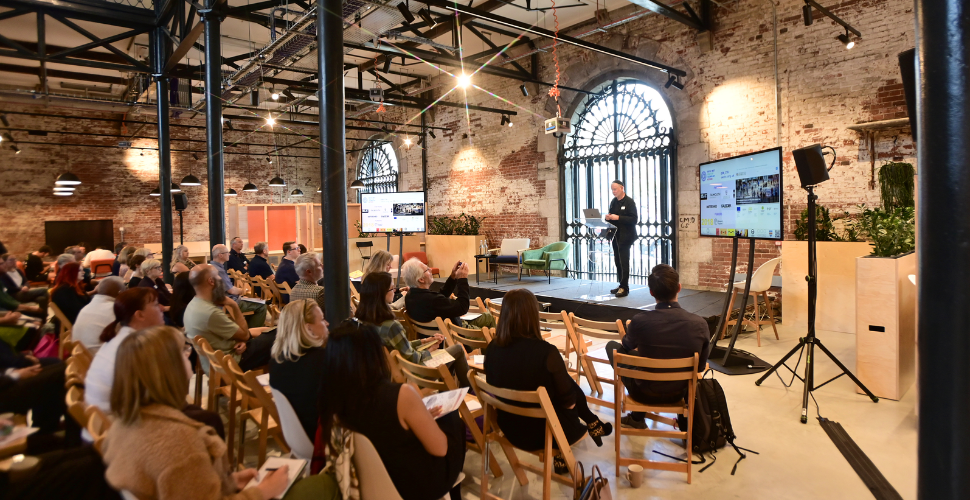Plymouth has been recognised as a national and international hub for immersive technology, with the potential to lead business transformation and high-growth jobs.
One of the key figures in the field of virtual, augmented and mixed reality technologies has praised the city’s sector and its potential following a recent Immersive Futures event, hosted by Plymouth Culture and produced by Creative UK.
Asha Easton, Immersive UK Lead KTN, which is the UK’s leading membership organisation for immersive technology, said: “I have been blown away today by the amazing Market Hall and the array of partners who have come to the table.
“There is a lot of potential in Plymouth and this part of the South West to create a more holistic funding opportunity for all the partners in this area and to make this a hub for immersive technology. This is an area I don’t feel has had enough exposure and we would love to highlight more because of the great work taking place.”
Immersive technology is becoming increasingly common, from headsets for gaming to QR codes that show film content on information panels and training staff in technical skills.
The event at the Market Hall in Devonport saw creatives, technologists, investors, funders, educators and businesses come together to discuss the global growth in the sector and how Plymouth is perfectly positioned to capitalise on this to create economic and social benefit locally.
The event came as a report by the UK Creative Industries projects that with the right investment, the sector could recover faster than the UK economy, growing by over 26 per cent by 2025 and contributing £132.1 billion to the economy in GVA – over £28 billion more than in 2020 – more than the financial services, insurance and pension industries combined.
A report based on 2017 data predicted that in Plymouth if growth continues at the same rate, by 2030 digital technologies will be worth £124m to the Plymouth economy and businesses will employ 2,438 full time equivalent people.
Council leader Richard Bingley said: “This is a very exciting time for this industry and it’s great to hear so much work is going on here in Plymouth to apply these technologies, to research and develop and importantly, to create high skilled and high value jobs.
“The networks are all in place, the next generation of developers are already studying here and between them these organisations are attracting key talent to Plymouth and building a powerful reputation for immersive excellence.”
The Market Hall immersive dome is the first of its kind in Europe and one of a handful of its kind around the world. Created in collaboration by Real Ideas Organisation, Plymouth City Council and the University of Plymouth, it offers a 360 degree visual and 19 channel surround sound experience, making it the perfect location to talk immersive tech.
While most people are aware of virtual and augmented reality uses in entertainment, it is increasingly used for other applications. Aerospace engineers use it to help wire aircraft. VR is used to help paraplegics regain control of their lower limbs.
Conrad Humphreys' Bounty Project uses 360 degree cameras to capture footage from the boat which can be shown in the immersive dome at Market Hall, enabling increased access for those with access needs.
The university offers a degree course in Virtual Reality Design, where students learn to design immersive media and create content that will influence communication, work and play in the future. Its Immersive Media Laboratory provides facilities for 3D scanning and motion capture as well as space to experiment with AR and VR technologies. Arts University Plymouth creates immersive experiences that redefine our expectations of how we learn about the world around us and what our perception of culture is.
Clusters like Oceansgate, or neighbours Babcock – the international naval, aerospace and security company – use immersive technology in increasingly innovative ways – in engineering, manufacturing and defence.
Immersive technology is transforming the health sector and is being used to train students and medical practitioners before exposing them to real-life patients through interactive learning. The Digital Futures Lab at Torbay & South Devon NHS, for instance, are using headsets to creating calm virtual environments for patents while they receive care such as injections.
The Immersive Futures event was just the start and key partners such as Real Ideas, University of Plymouth, Falmouth University and Exeter University are looking to collaborate with businesses, funders and investors to put the far SW Immersive Cluster on the map.
